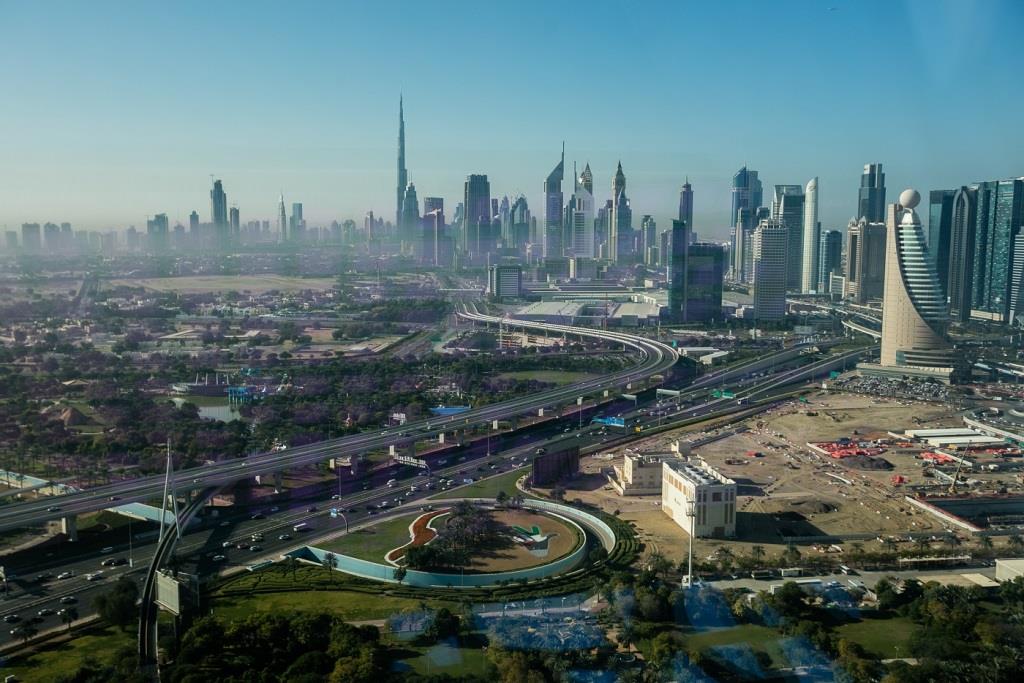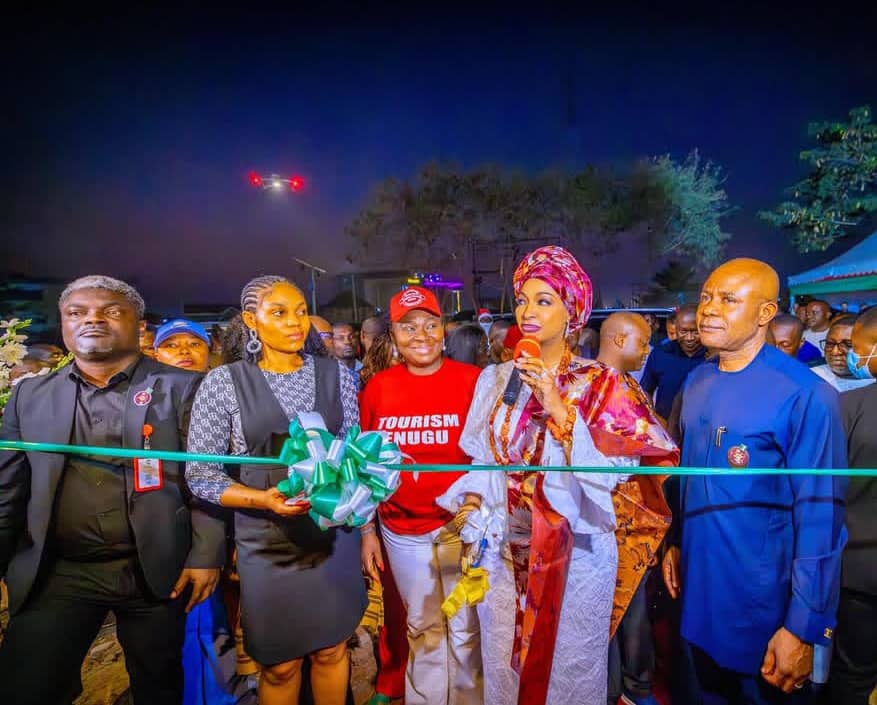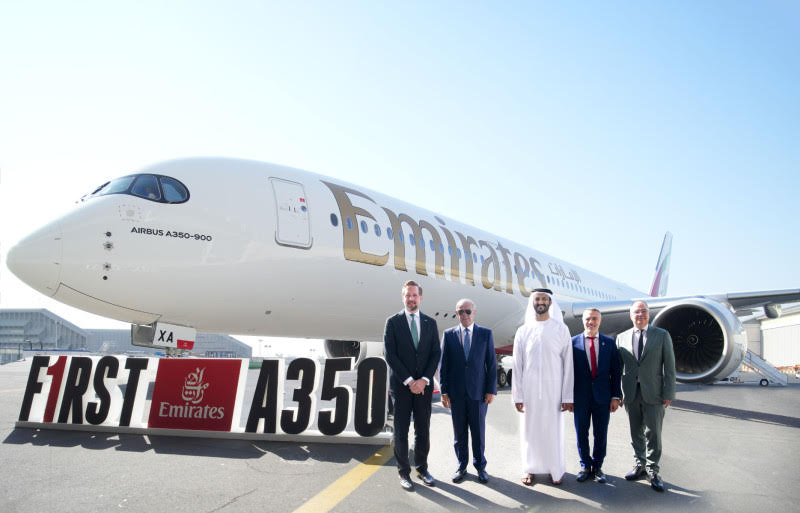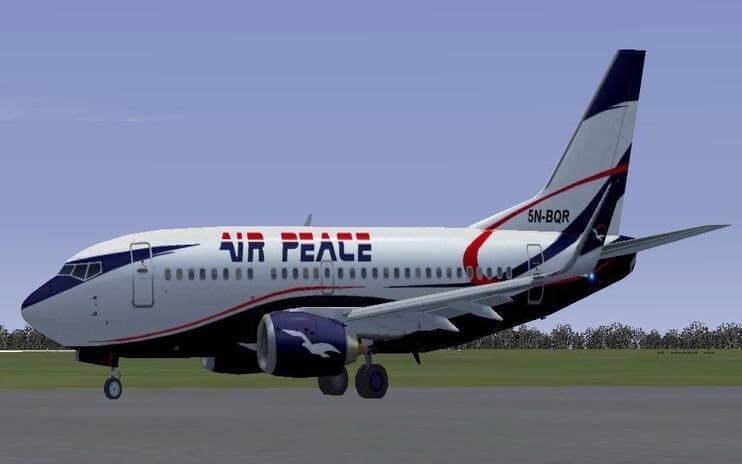Travel/Tourism
Dubai Moves to Become World’s First Most Visited City

**Records 15.8m Int’l Overnight Visitors in 2017
By Modupe Gbadeyanka
Last year, Dubai recorded a strong 6.2 percent year-on-year increase in international overnight visitation, accelerating the 5 percent growth witnessed in the previous year and propelling the emirate’s momentum towards its 2020 goal of welcoming 20 million visitors per year by the start of the next decade.
According to the latest data published by Dubai’s Department of Tourism and Commerce Marketing (Dubai Tourism), a total of 15.79 million tourists visited Dubai last year, setting a new record for the emirate and underlining the sustained strength and resilience of its travel and tourism sector.
Commenting on the development, His Excellency Helal Saeed Almarri, Director General, Dubai Tourism, said: “Under the visionary leadership of His Highness Sheikh Mohammed Bin Rashid Al Maktoum, Vice-President and Prime Minister of the UAE and Ruler of Dubai, the emirate has continued to capture the share of the global outbound travel market, complemented by a significant increase in tourism-driven economic contribution to the country’s GDP.
“Our strong 6.2 percent growth in 2017 has allowed us to ramp up the pace towards meeting our 2020 targets, and we remain confident that our performance, backed by the continued strength of our partnerships across government and private sector stakeholders, will enable us to successfully attain our goals of becoming the number one most visited city as well as being the most recommended with the highest number of repeat Dubai loyalists.”
India retained top spot in 2017, contributing 2.1 million visitors, becoming the first country to cross the 2 million mark in a single year.

The country’s performance represented a 15 percent year-on-year increase and validated, among other factors, the success of Dubai Tourism’s ongoing collaboration with Bollywood superstar Shah Rukh Khan in the multi award-winning #BeMyGuest campaign.
The Kingdom of Saudi Arabia (KSA) maintained its second rank, contributing a total of 1.53 million tourists last year, maintaining its position as the highest driver of traffic volumes from within the Gulf Cooperation Council (GCC).
Third-placed UK, meanwhile, delivered 1.27 million travellers, rising 2 percent over 2016, underscoring Dubai’s enduring popularity among British travellers.
Impressive results from some of Dubai’s remaining top 10 source markets for inbound tourism included fifth-placed China with 764,000 tourists, up 41 percent while eighth-placed Russia with 530,000 visitors, recording a stellar 121 percent increase over the previous year.
Both markets benefited from easier access following the introduction of visa-on-arrival facilities to Chinese and Russian citizens in late 2016 and early 2017, respectively.
With increased contributions also from the USA, Germany and Iran, at 633,000, 506,000 and 503,000 visitors respectively, collective gains across all of these markets helped mitigate the decline in visitation observed from some of the regional markets like Oman and Pakistan.

Western Europe replaced the GCC as Dubai’s main regional source market with a 21 percent share, contributing more than 3.2 million travellers, up 5.5 percent.
Although last year’s top performer ended 2017 in second place, the GCC region still maintained a high share of volume at 19 percent, delivering an overall 3.02 million travellers to Dubai. This 4 percentage point decline in GCC share was, however, effectively countered by year-on-year increases in tourist volumes from all other regional source markets except Australasia.
The South Asia region, in third place, contributed an 18 percent share of over 2.8 million visitors, up a strong 10.6 percent, followed by the Middle East and North Africa (MENA), and North and South-East Asia regions in joint fourth position, each contributing close to 1.7 million visitors and independently commanding 11 percent share, the former recording a 3.2 percent increase and the latter, an impressive 23.6 percent over 2016 visitation figures.
Underscoring the successful delivery of its diversified market strategy, Dubai’s regional mix saw the biggest year-on-year gain of 51.8 percent from the Russia, CIS and Eastern Europe block, contributing more than 1.1 million visitors and representing a share of 7 percent; the Americas with a 6 percent share made up of just under 1 million visitors, up 7.7 percent; the Africa region with a 5 percent share made up of more than 780,000 travellers, up 6.7 percent; and finally Australasia countries with a 2 percent share of overall volumes, with a total of just under 340,000 visitors.

Supporting the city’s priority agenda to always offer something new, unique and world-class to every global traveller, 2017 saw further strides made in broadening Dubai’s appeal to a wide spectrum of visitors.
The city’s newest beachfront district, La Mer, opened to provide families with a new hotspot for dining, playing and unwinding, while Etihad Museum was inaugurated to give the culturally curious an enriching overview of the birth of the United Arab Emirates and the fathers of the nation.
Meanwhile, Dubai’s new era of live entertainment saw yet another boost with the inauguration of La Perle, the region’s first resident theatrical show, performed in a state-of-the-art aqua theatre in Habtoor City.
Dubai’s major theme parks – IMG Worlds of Adventures and Dubai Parks and Resorts (DPR) had their first full year of operations in 2017. And continuing to enhance Dubai’s attractiveness as a global shopping destination following its launch in December 2016, Dubai’s Retail Calendar saw both traffic and engagement across the 12 months of shopping-related festivals, promotions and seasonal offer periods, mega-sales and clearance events, exclusive retail experiences and activations.
Among the openings towards the end of the year were Dubai Frame and Dubai Safari. New destination offerings coming online in 2018 include sections of the Dubai Historic District, giving visitors an immersion into the rich history of the emirate, glimpses of how people used to live and work, and traditions and customs that remain to this day. To add to the mix is UAE’s first national park, Al Marmoum, which launched at the beginning of 2018, providing an opportunity for tourists to interact, learn and appreciate the wildlife flora and fauna of the emirate. With more options for visitors, combined with key fundamentals and the UAE’s status as the second ranked country globally for safety and security, according to the World Economic Forum’s Travel and Tourism Competitiveness Report, a firm path has been set for further growth in visitation numbers.
Travel/Tourism
Musawa, Governor Mba Commission Enugu Christmas Village

By Dipo Olowookere
The Enugu Christmas Village has been commissioned by the Minister of Arts, Tourism, Culture, and the Creative Economy, Ms Hanatu Musawa; and the Governor of Enugu State, Mr Peter Mba.
This development officially kicked off the holiday season in the state, giving residents and others from across Nigeria and outside the opportunity to relax in an atmosphere of love, positioning Enugu as a key destination for cultural and holiday tourism.
Facilitated by Omu Resort, a leading tourism promoter in Africa, the Enugu Christmas Village is set to become the heartbeat of holiday celebrations in the state.
The company has already organised a 25-day festival at the village designed to attract residents, visitors, and dignitaries from across the region.
With its vibrant atmosphere and festive attractions, the Enugu Christmas Village boasts an array of attractions such as a waterpark, roller skating, archery, amusement rides, and much more.
At its centre is a breathtaking display of 500,000 Christmas lights, illuminating the village in a magical glow that promises to captivate visitors of all ages.
The festival goes beyond the lights and rides, offering a rich tapestry of events that celebrate the state’s cultural heritage.
Highlights include Afrobeat Concert, Praise Night, Highlife Concert Street Carnival, Cultural Parade and a Grand Fireworks Show.
One of the most anticipated moments is the Santa Street Storm, where over 100 Santa Claus figures riding tricycles will parade through the streets, distributing gifts to orphanages and the less privileged, spreading joy and goodwill.
Running from December 7 to December 31, 2024, the Enugu Christmas Festival is more than just a celebration of the holiday season. It underscores the state’s cultural vibrancy and its potential as a leading tourist destination.
The festival offers a unique opportunity for families and friends to come together, celebrate, and unwind in a festive atmosphere. It is also expected to fosters unity and showcases the rich cultural heritage of Enugu State, while promoting arts, tourism, and community well-being.
Travel/Tourism
Emirates Unveils Airbus A350-900 in Dubai

By Aduragbemi Omiyale
One of the leading airline operators, Emirates Airline, has officially unveiled its first Airbus A350-900 at an exclusive event showcase in Dubai attended by aerospace partners, government officials and dignitaries, members of the media, as well as aviation enthusiasts.
The Emirates A350 features three spacious cabin classes, accommodating 312 passengers in 32 next-generation Business Class lie-flat seats, 21 Premium Economy seats and 259 generously pitched Economy Class seats.
The latest onboard products reflect the airline’s commitment to delivering a premium passenger experience while optimising operational efficiency. The Emirates A350 is the first new aircraft type to join Emirates’ fleet since 2008.
Apart from its newly delivered A350, Emirates operates two other aircraft types around the world to 140 destinations – the widebody Boeing 777 aircraft and the iconic ‘double decker’ Airbus A380 aircraft.
The A350’s introduction will enable Emirates to expand into new destinations globally, including mid-sized airports unsuited for larger aircraft. The Emirates A350 will be delivered in two versions – one for regional routes and one for ultra long-haul routes.
The Emirates A350 takes technology to another level. Customers can now adjust their electric window blinds at the touch of a button.
The aerBlade dual blind system will feature in Business and Premium Economy Class offering two shaded options, and the aerBlade single blind systems will make a debut in Economy Class, with all blinds showing the Emirates Ghaf tree motif when closed.
Business Class on the Emirates A350 will feature 32 luxurious leather ‘S Lounge seats’, inspired by the Mercedes S Class for an exceptional travel experience. The A350 aircraft will feature brand new additions of wireless charging on the side cocktail table in Business Class, and in-seat lighting controls with 5 streams of light. The 1-2-1 seat configuration in the A350 Business Class ensures a very private, exclusive experience.
Speaking at the event, the chairman of Emirates Airline, Mr Ahmed bin Saeed Al Maktoum, said, “Today is an exciting milestone for Emirates as we showcase our first A350 and usher in a new era for our fleet and network growth.
“This aircraft sets the stage for Emirates to spread its wings farther by offering added range, efficiency and flexibility to our network, enabling us to meet customer demand in new markets and unlock new opportunities in the cities that we serve.
“Onboard, our updated interiors and seating configurations will help us deliver a more elevated and comfortable experience to travellers across every cabin class.
“The 65 Emirates A350s joining our fleet in the coming years fit into the airline’s broader plans to support our visionary leadership’s Dubai’s D33 Strategy, which will transform the city into a pivotal hub in the global economy by expanding its connectivity and reach.”
Travel/Tourism
Air Peace Employees Undergo Training at Boeing Global Learning Institute

By Aduragbemi Omiyale
Some employees of Air Peace have upgraded their aviation safety skills at a training course organised by Boeing through the Boeing Global Learning Institute (BGLI) in collaboration with Cranfield University, United Kingdom as part of a shared commitment to shaping the future of aviation leadership.
Over the years, Air Peace has recognized that a deep, unwavering commitment to safety is key to its continued success.
The programme is aimed at building upon that vision, enabling executives to lead with confidence, manage risks effectively, and create high-performing teams that prioritize safety at every level.
In the five-day in-person training, all the executives and others in the various departments of Air Peace were taught advanced safety leadership skills and gained practical tools to implement the new knowledge.
The Head of Aerospace at Cranfield University, Prof Graham Braithwaite, said, “This collaboration ensured that the training directly addresses the challenges Air Peace faces, culminating in real-world capstone projects that would have a lasting impact.”
Reinforcing this position, the Lecturer for Organisational Resilience and Change at Cranfield School of Management, Fabian Steinmann, who was excited at the great progress Air Peace made over the years, said that they are happy to learn and share knowledge and find ways to strengthen the system, making it robust and flexible to adapt to the ever-changing environment.
“Safety is at the heart of everything we do at Cranfield so the privilege we have is that we travelled around the world, picked up the good practices, learned more about the culture and the operation in various countries so we’re here to facilitate that exchange with Nigeria and Air Peace to see how we share some of the good practices and lessons learned from all around the world and translate them into their operation.”
Also, the Senior Organisational Consultant and Programme Manager at Boeing Global Learning Institute, Harry Magui, said, “The Boeing company has long recognised the importance of supporting continuous learning of our aviation partners.
“To that end, the Boeing Global Learning Institute designs and delivers numerous learning programmes to both emerging and established leaders of our partners.
“These efforts aim to develop leadership, business, and technical skills so that our partners can improve their business processes, increase operational efficiency and enable leaders to strengthen their teams to ultimately grow their business.’
Alluding to the great work Air Peace has done in making safety a pre-condition rather than just a priority, Magui said, “We’re here to partner with our great partner, Air Peace who have been phenomenal in advancing the Aviation Industry in Nigeria, so we are here to support them to harness more opportunities in the future with the Advanced Leadership in Safety Excellence Training for all its top leadership within the organization.”
The Safety Manager at Air Peace, Captain Godfrey Ogbogu, said, “This class is quite essential and we’re lucky to have our resource persons impact knowledge on us. It is a well-structured training, especially for Air Peace because of where we are now and where we hope to go in the future.
“The whole essence of this class is to reinforce what we know before and be exposed to other avenues of learning. The aviation industry is ever-changing and dynamic, and Air Peace has to be abreast of such developments.”
-

 Feature/OPED5 years ago
Feature/OPED5 years agoDavos was Different this year
-
Travel/Tourism8 years ago
Lagos Seals Western Lodge Hotel In Ikorodu
-

 Showbiz2 years ago
Showbiz2 years agoEstranged Lover Releases Videos of Empress Njamah Bathing
-

 Banking6 years ago
Banking6 years agoSort Codes of GTBank Branches in Nigeria
-

 Economy2 years ago
Economy2 years agoSubsidy Removal: CNG at N130 Per Litre Cheaper Than Petrol—IPMAN
-

 Banking2 years ago
Banking2 years agoFirst Bank Announces Planned Downtime
-

 Sports2 years ago
Sports2 years agoHighest Paid Nigerian Footballer – How Much Do Nigerian Footballers Earn
-

 Technology4 years ago
Technology4 years agoHow To Link Your MTN, Airtel, Glo, 9mobile Lines to NIN
























